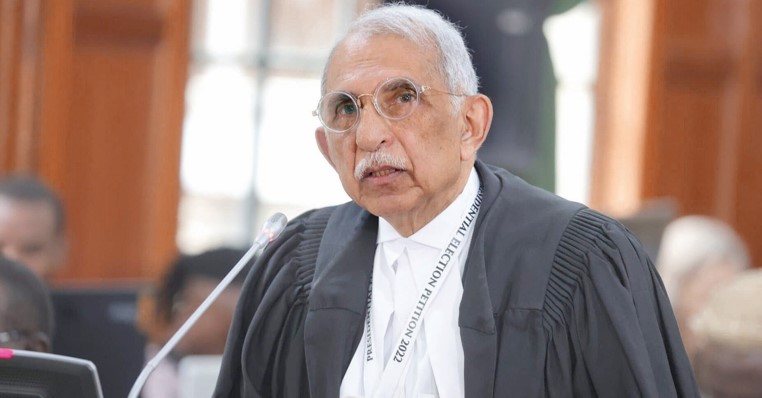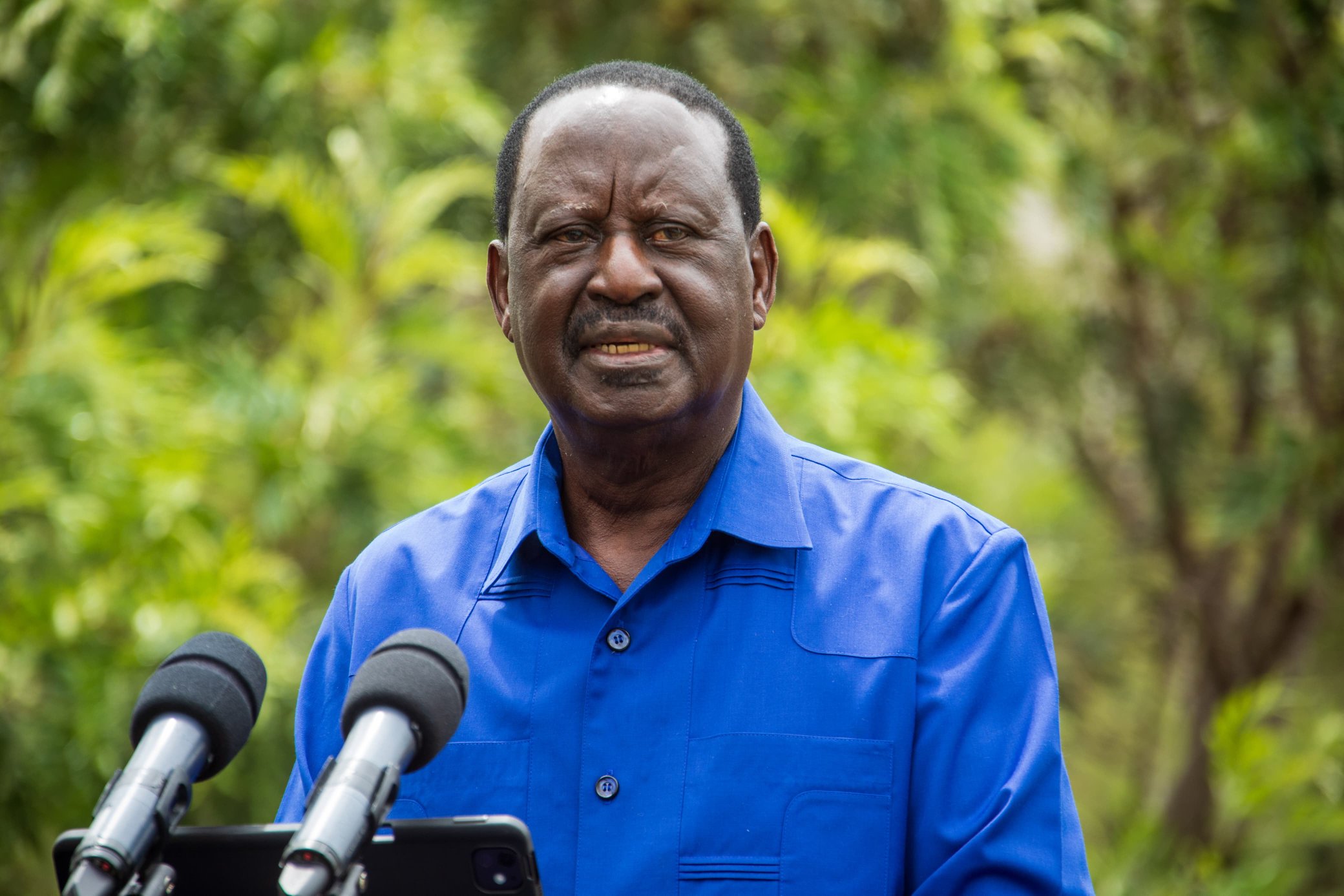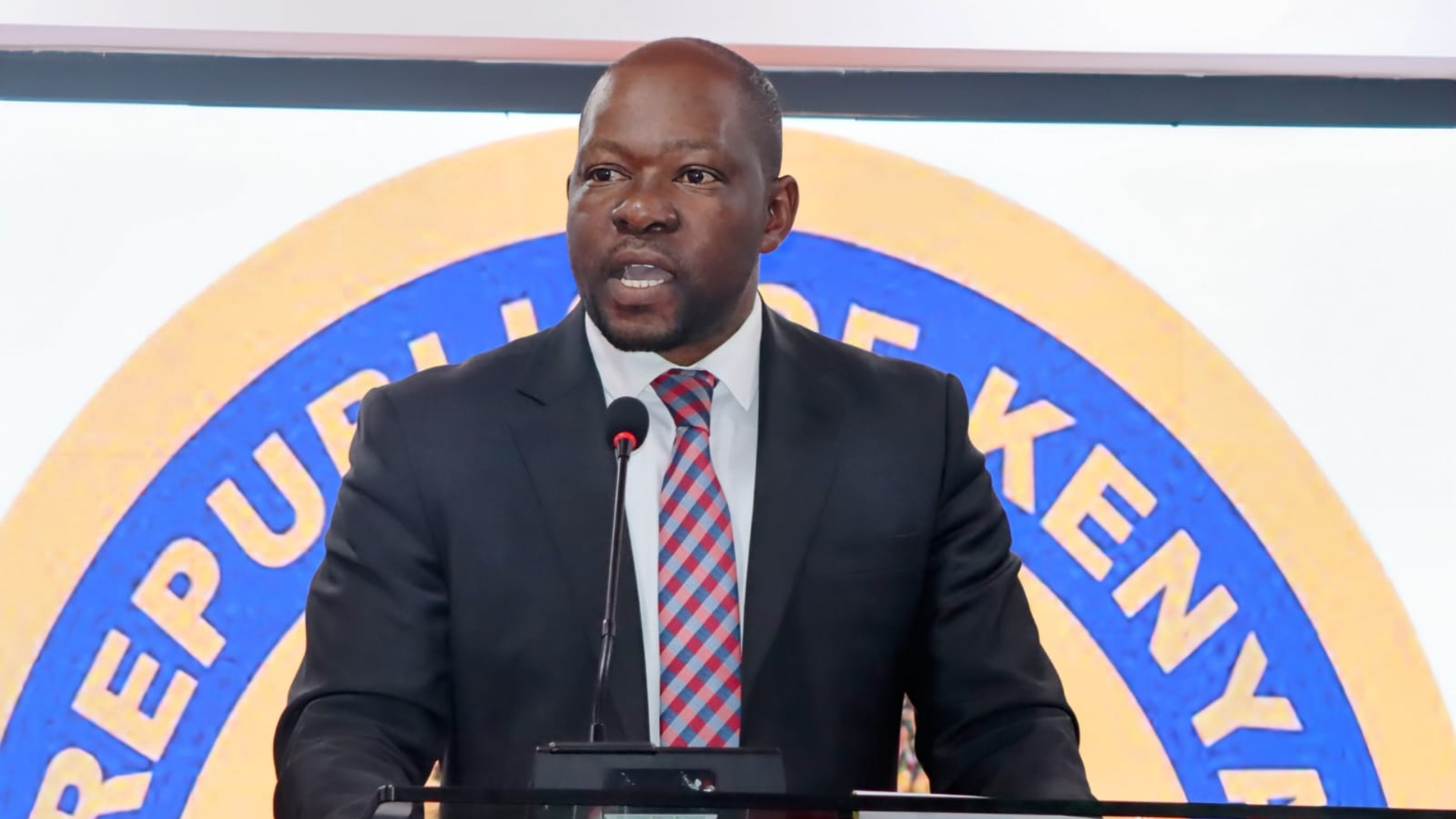Pheroze Nowrejee: Gentle titan of justice

The passing of Pheroze Nowrojee on April 5, at the age of 84 marks the end of an era for Kenya’s legal and democratic history. For those of who have studied the country’s journey toward constitutionalism and justice, his death is not just the loss of a lawyer, but of a moral pillar who embodied the best ideals of what it means to be a citizen of a free society.
Born in 1941, Pheroze Nowrojee’s career spanned nearly seven decades. He was part of a generation that experienced Kenya in its early postcolonial years, where the dreams of independence were often met with the harsh realities of political repression.
Yet Pheroze’s place in the country’s history predates even his own professional journey. His family’s roots in Kenya are deeply interwoven with the nation’s colonial and postcolonial evolution. In 1896, his grandfather—also named Pheroze Nowrojee—arrived in British East Africa as an engine driver for the Uganda Railway, part of the massive infrastructure project that would shape the future of Kenya and East Africa at large. It was this migration that marked the family’s first steps toward establishing themselves in a new land.
The Nowrojees did not merely settle; they contributed. History rightly chronicles that Pheroze’s father, Eruch Nowrojee, pursued a distinguished career in law and played a significant role in the country’s colonial legal history. In 1953, Eruch served as the defense attorney during the Mau Mau Lari massacre trials in Githunguri—a courageous and principled act during a time of immense political tension. It was in the shadow of this moral bravery that the younger Pheroze came of age, observing the power of the law both as a colonial tool and as a potential instrument of justice. These early experiences, both personal and national, shaped his commitment to justice, inspiring him to take up the law not merely as a profession, but as a calling.
Kenya, in the early decades of its independence, was struggling to forge its identity. President Jomo Kenyatta’s administration was dealing with the legacies of colonialism and the challenges of uniting a diverse nation. But by the 1970s, under President Daniel arap Moi, the country shifted toward authoritarian rule. The state’s repressive tactics, including the abuse of the legal system, were used to silence critics and maintain a tight grip on power. This was the environment that produced lawyers like Pheroze.
In the 1980s and 1990s, Pheroze became one of Kenya’s most prominent human rights advocates, defending political detainees and pro-democracy activists who found themselves under siege by the Moi regime.
Removing Moi from power
Pheroze’s most well-known work in this period came when he defended several prominent political figures, many of whom were detained, persecuted, or falsely accused due to their opposition to the Moi government. In 1990, Kenneth Matiba and Charles Rubia were arrested for calling for the reintroduction of multiparty democracy, which was a direct challenge to Moi’s one-party rule. Their arrest was part of a broader attempt by the regime to suppress political dissent. Pheroze stepped forward as their lawyer, arguing that their detention was unlawful. His legal strategy was bold, but it was grounded in an unwavering belief in the sanctity of the law and the rights of the individual.
This was not just a matter of legal defense—it was a matter of principle. Pheroze was clear: the state’s actions were illegal, and it was the duty of lawyers to uphold the rule of law, no matter the political environment. The fact that Matiba and Rubia were eventually freed was a testament to the strength of Pheroze’s legal arguments and his belief in justice. But it also revealed the power of the judiciary when it operated independently and had lawyers willing to risk everything to defend the rights of individuals.
In the years that followed, Pheroze’s legal advocacy continued to grow. He defended Raila Odinga, a key figure in Kenya’s pro-democracy movement, who had been arrested multiple times in the late 1980s and 1990s for his opposition to the regime. The state’s repeated persecution of Raila was seen as emblematic of its broader strategy of silencing opposition voices. Pheroze’s defense of Raila, and other activists like Koigi wa Wamwere, George Anyona, and James Orengo now Siaya county governor, was not just about securing their release. It was about challenging the broader culture of impunity and repressive politics that had come to define Kenya under Moi’s leadership.
In 1993, Pheroze joined the defense team for Koigi wa Wamwere, a fiery political activist who had been charged with treason after a supposed raid on a police station in Bahati. The case, widely viewed as politically motivated, became a high-profile test of the state’s ability to manipulate the legal system.
Pheroze’s defense was a powerful rebuke to the government’s narrative, demonstrating the lengths to which the Moi regime was willing to go to silence its critics. Pheroze’s arguments were not just legal in nature—they were deeply moral, rooted in the belief that no government has the right to imprison its citizens for exercising their constitutional rights. Through the 1990s, as Kenya’s political landscape shifted and calls for multiparty democracy grew louder, Pheroze continued to defend those who dared to challenge the system. But Pheroze’s contributions were not limited to the courtroom. He was also a prolific writer, public speaker, and commentator on legal and political issues.
His intellectual output was shaped by his belief that law was not a tool for the elite, but a tool for justice. His writings often challenged the status quo, urging the legal profession to think critically about its role in society.
As Kenya’s political environment evolved Pheroze remained a consistent voice for democracy and constitutionalism. He played a significant role in the discussions leading to the 2002 democratic transition and was instrumental in the formulation of the 2010 Constitution, which many view as a crucial turning point in Kenya’s journey toward a more inclusive and democratic society.
His contributions to the drafting of the 2010 Constitution were emblematic of his vision for a just Kenya.
Although I never met Pheroze in person, I met him through the enduring force of history—through his courtroom triumphs, the cadence of his speeches, the clarity of his essays, and the resilience of those he defended. I encountered him in the echoes of archival documentaries and in the margins of footnotes that told of a man who stood when others cowered. For historians, such encounters are as intimate as handshakes. We meet not only the man but the moral compass he left behind.
In the grand procession of Kenya’s history—from the bloodied chains of colonial detention camps, through the betrayals of post-independence authoritarianism, to the long nights of torture chambers and the defiant birth of a new constitution—Pheroze walked as both witness and warrior.
He was not merely a lawyer in a robe, but a chronicler of conscience, a living archive of our unfinished revolution. In a nation where many bowed to the whims of power, he stood—calm, deliberate, incorruptible—like a lighthouse amid a raging storm. His life reminds us that history is not only made by presidents and generals, but by those who dare, with pen and voice, to speak truth to power. For those of us who record the past, let it be said: Pheroze Nowrojee did not merely live in history—he shaped it.
The writer is a History Lecturer & UASU Chapter Trustee, Alupe University-Kenya














